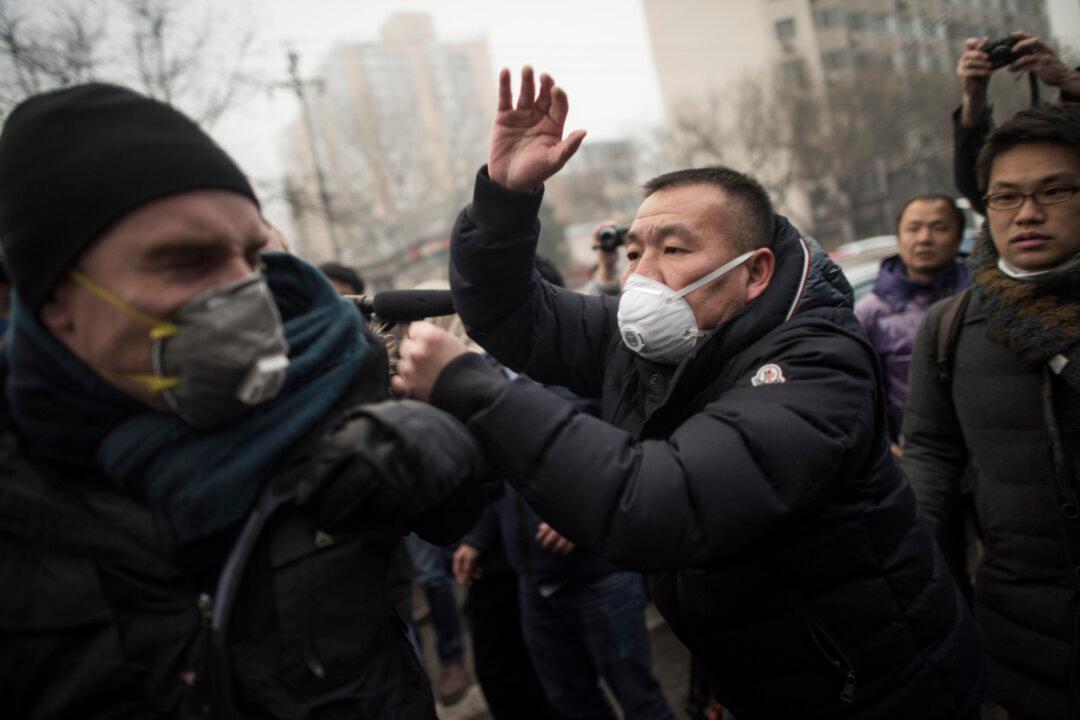As the long-awaited trial of Pu Zhiqiang, a prominent Chinese human rights lawyer, commenced in a Beijing court on Monday, Dec. 14, Beijing police roughed up Pu’s supporters and journalists gathered outside the courthouse.
“The fact that so many citizens, foreign media, and even diplomats went to the court has made the authorities extremely furious,” said Teng Biao, one of China’s most notable human rights lawyers and now a visiting scholar at Harvard Kennedy School, in a telephone interview. “They flew into a rage out of humiliation.”
Pu, 50, has been in custody since May 2014. Ostensibly, he is being charged with “inciting ethnic hatred” and “picking quarrels and provoking trouble” for seven posts on a Chinese microblogging site.

But the real reason for the prosecution is political, says Teng Biao. “Pu Zhiqiang has been at the forefront of the human rights movement in China,” he said. His specialities include agitating for the disclosure of the truth of the 1989 Tiananmen Square massacre, agitating for the closure of the labor camp system (which was effected), and criticizing former security czar Zhou Yongkang for running a highly repressive security apparatus.





